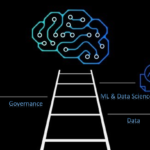Privacy Concerns
/ /
In an increasingly digitized world, facial recognition technology has become a prominent tool used in various domains. From unlocking smartphones to surveillance systems and law enforcement applications, this technology offers convenience and efficiency. However, its pervasive presence raises significant ethical concerns, particularly regarding privacy. In this blog post, we delve into the privacy implications of facial recognition technology, examining the risks, challenges, and potential solutions to navigate this complex landscape.
- Understanding Facial Recognition Technology: Before diving into privacy concerns, it’s crucial to grasp the fundamentals of facial recognition technology. Exploring how it works, from capturing images to analyzing facial features and matching them against existing databases or profiles, provides a foundation for understanding the privacy implications that follow.
- Data Collection and Storage: One of the primary concerns surrounding facial recognition technology is the collection and storage of facial data. Discuss the various sources of data, such as surveillance cameras, social media platforms, and public databases, and highlight the importance of informed consent when collecting and using such data. Address the potential risks of unauthorized access, data breaches, and the long-term storage of sensitive biometric information.
- Surveillance and Constant Monitoring: Facial recognition technology has expanded surveillance capabilities, enabling constant monitoring in both public and private spaces. Discuss the potential consequences of mass surveillance, examining the impact on personal freedoms, anonymity, and the chilling effect it may have on society. Consider case studies and examples where this technology has been deployed and the resulting privacy implications.
- Potential for Misuse and Abuse: Explore the ethical dilemmas associated with the potential misuse and abuse of facial recognition technology. Discuss concerns regarding government overreach, abuse by law enforcement, and the risks of surveillance becoming a tool for social control or discrimination. Highlight the importance of safeguards and oversight mechanisms to prevent such abuses.
- Biases and Discrimination: Facial recognition algorithms have demonstrated biases, particularly regarding race, gender, and age. Address the ethical implications of these biases, discussing the potential for discriminatory outcomes in law enforcement, hiring practices, and public surveillance. Explore the risks of perpetuating societal biases and the need for transparency and accountability in algorithmic decision-making.
- Transparency and Consent: Discuss the importance of transparency in facial recognition technology deployments. Address the need for clear communication and consent mechanisms for individuals whose data is being collected and processed. Explore initiatives promoting privacy-preserving techniques, such as anonymization or encryption, to mitigate privacy risks while still benefiting from facial recognition technology.
- Legal and Regulatory Frameworks: Examine the current legal and regulatory landscape surrounding facial recognition technology. Discuss the challenges of establishing comprehensive and effective frameworks to safeguard privacy rights while accounting for technological advancements. Highlight recent developments, such as the General Data Protection Regulation (GDPR) in Europe and its impact on facial recognition practices.
- Promoting Responsible Practices: Outline best practices for organizations and developers involved in facial recognition technology. Encourage responsible data management, security measures, and ethical considerations in the development, deployment, and usage of this technology. Emphasize the importance of accountability and ongoing evaluation to address privacy concerns and maintain public trust.
Posted in Blogs


































